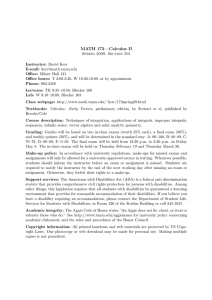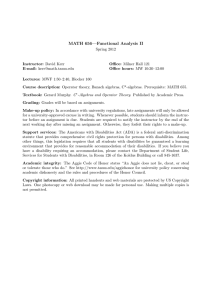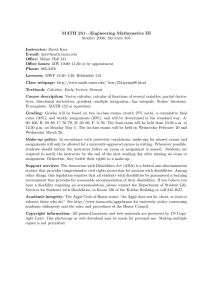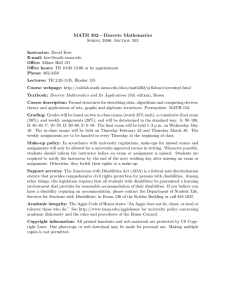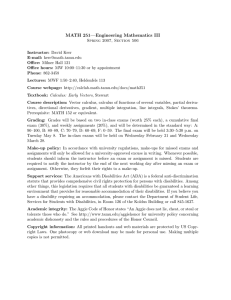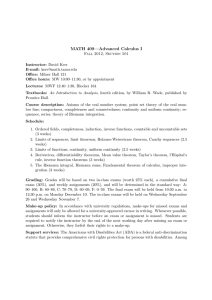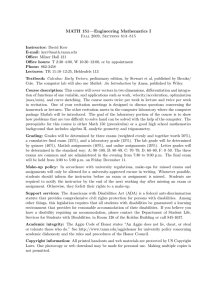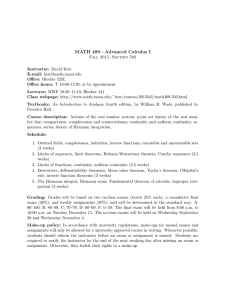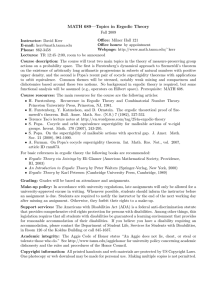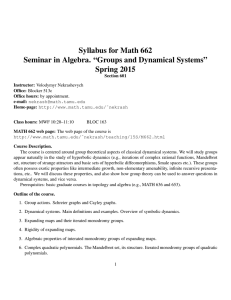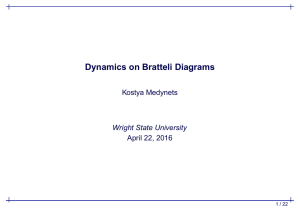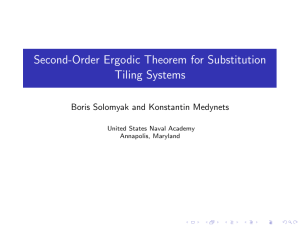MATH 689—Topics in Dynamics and Analysis
advertisement
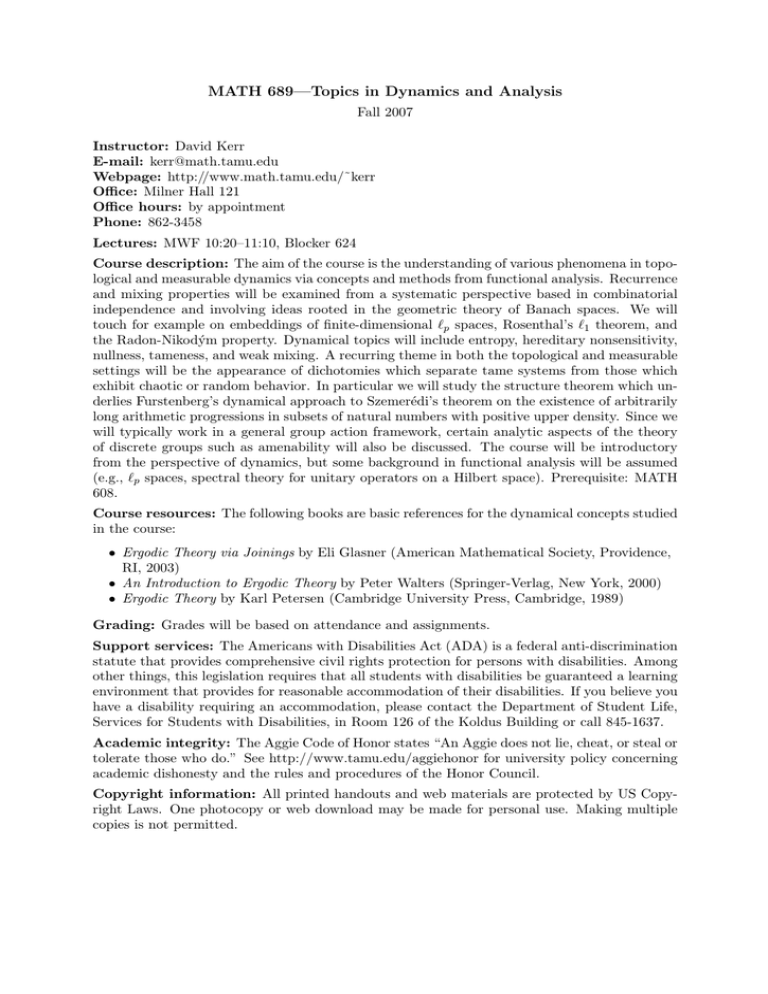
MATH 689—Topics in Dynamics and Analysis Fall 2007 Instructor: David Kerr E-mail: kerr@math.tamu.edu Webpage: http://www.math.tamu.edu/˜kerr Office: Milner Hall 121 Office hours: by appointment Phone: 862-3458 Lectures: MWF 10:20–11:10, Blocker 624 Course description: The aim of the course is the understanding of various phenomena in topological and measurable dynamics via concepts and methods from functional analysis. Recurrence and mixing properties will be examined from a systematic perspective based in combinatorial independence and involving ideas rooted in the geometric theory of Banach spaces. We will touch for example on embeddings of finite-dimensional `p spaces, Rosenthal’s `1 theorem, and the Radon-Nikodým property. Dynamical topics will include entropy, hereditary nonsensitivity, nullness, tameness, and weak mixing. A recurring theme in both the topological and measurable settings will be the appearance of dichotomies which separate tame systems from those which exhibit chaotic or random behavior. In particular we will study the structure theorem which underlies Furstenberg’s dynamical approach to Szemerédi’s theorem on the existence of arbitrarily long arithmetic progressions in subsets of natural numbers with positive upper density. Since we will typically work in a general group action framework, certain analytic aspects of the theory of discrete groups such as amenability will also be discussed. The course will be introductory from the perspective of dynamics, but some background in functional analysis will be assumed (e.g., `p spaces, spectral theory for unitary operators on a Hilbert space). Prerequisite: MATH 608. Course resources: The following books are basic references for the dynamical concepts studied in the course: • Ergodic Theory via Joinings by Eli Glasner (American Mathematical Society, Providence, RI, 2003) • An Introduction to Ergodic Theory by Peter Walters (Springer-Verlag, New York, 2000) • Ergodic Theory by Karl Petersen (Cambridge University Press, Cambridge, 1989) Grading: Grades will be based on attendance and assignments. Support services: The Americans with Disabilities Act (ADA) is a federal anti-discrimination statute that provides comprehensive civil rights protection for persons with disabilities. Among other things, this legislation requires that all students with disabilities be guaranteed a learning environment that provides for reasonable accommodation of their disabilities. If you believe you have a disability requiring an accommodation, please contact the Department of Student Life, Services for Students with Disabilities, in Room 126 of the Koldus Building or call 845-1637. Academic integrity: The Aggie Code of Honor states “An Aggie does not lie, cheat, or steal or tolerate those who do.” See http://www.tamu.edu/aggiehonor for university policy concerning academic dishonesty and the rules and procedures of the Honor Council. Copyright information: All printed handouts and web materials are protected by US Copyright Laws. One photocopy or web download may be made for personal use. Making multiple copies is not permitted.
